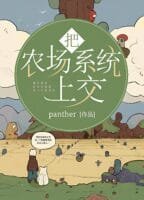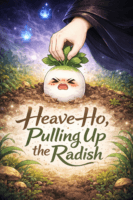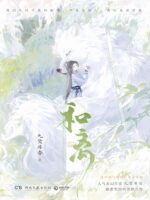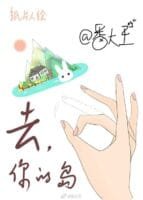I Have A Store C187
by MarineTLChapter 187: Business Comes from the Neighboring Village
Because they didn’t have a honey extractor, they had to use traditional methods to collect honey, which was a bit more troublesome.
In modern times, extracting honey is much easier.
You just place the comb frame into the honey extractor, spin the handle quickly, and use centrifugal force to fling the honey from the comb onto the inner wall of the barrel, where it then drips down into the container. Finally, filter it through a mesh, and it’s ready to eat.
In fact, honey extractors aren’t hard to make, but they’re designed specifically for beehive frames, which don’t work well for collecting honey from wild honeycombs.
Since he didn’t have one, Zhou Yimin had to extract honey the traditional way.
He placed the honeycomb into a clean piece of gauze set above a basin. Then, using a small knife, he cut the honeycomb into small pieces. Once most of the honey had drained into the basin below, he gave it a few presses to extract the rest.
It was a one-step process that also served to filter the honey.
The term “honeycomb” might be unfamiliar to some people, but it simply refers to the structure bees build to store honey.
This word actually dates back to the Tang Dynasty.
Li Shangyin used it in his poem Feelings in the Boudoir:
“Red dewdrops on flower chambers, white honeycomb, yellow bees and purple butterflies in disarray. A spring nap and a romantic dream—yet my companion knows it not.”
Once the honey was separated and filtered, Zhou Yimin poured it into three jars.
“Grandma, let’s keep this one at home. You and Grandpa should drink a bit regularly—it’s good for your health,” Zhou Yimin said, leaving the biggest jar at home.
Of course, Zhou Yimin knew that some people shouldn’t drink honey water.
For example, infants—because honey can be contaminated with Clostridium botulinum during production and transport, and an infant’s immune system isn’t fully developed, so consuming honey can pose health risks.
People with diabetes or cirrhosis should also avoid it.
But his grandparents didn’t fall into those categories, so it was actually beneficial for them to drink a little honey water.
He planned to give the other two jars to his father-in-law’s family and Aunt Li at the subdistrict office.
“Alright, Grandma knows.” The old lady smiled kindly.
Just then, someone came running over to tell him that Village Chief Wang from Shangshui Village was here to see him.
“He’s looking for me?” Zhou Yimin was a bit surprised.
After that time he exchanged sweet potatoes and regular potatoes with them, he hadn’t had any further dealings with Shangshui Village.
He’d heard that after seeing Zhoujiazhuang make use of the dried-up riverbed, Shangshui Village had followed suit. No one knew how they got their seeds, but they’d started planting crops too.
“Uncle Sixteen, I think it’s probably good news. Village Chief Wang and the Party Secretary were chatting and laughing together.”
Zhou Yimin nodded. “Alright, I’ll go take a look.”
With that, he headed toward the village center.
When he arrived, he saw that sure enough, Village Chief Wang and the old Party Secretary were chatting happily, completely free of the gloomy expressions from when they first met. Now, both Zhoujiazhuang and Shangshui Village were doing better—at the very least, their people weren’t going hungry anymore.
“Yimin, you’re here! Come, sit over here.” The Party Secretary waved him over and pointed to a nearby stool.
Village Chief Wang greeted him with a smile, tossing out phrases like “Long time no see.”
“Village Chief Wang, what brings you to Zhoujiazhuang with such free time?”
The Party Secretary cut in, “He wouldn’t come to the Temple of the Three Treasures for nothing—he’s here because he needs your help.”
But what he needed would also benefit Yimin.
“Oh? Then why don’t you go ahead and say it, Village Chief Wang? We’re not strangers.” Zhou Yimin invited him to speak plainly.
Since that was the case, Village Chief Wang didn’t bother beating around the bush. He said, “Our Shangshui Village also planted some crops that weren’t part of the central plan. We’d like to sell them to the steel factory.”
The steel factory paid better than the supply and marketing cooperative, so of course they wanted to sell to the factory.
Since these were unplanned crops, there weren’t strict rules on how to deal with them, and the village could make their own decisions. Naturally, they hoped to sell at a better price, or at least trade for more goods.
When Zhou Yimin heard this, he thought, Aren’t they just bringing business to me?
It was definitely good news!
He immediately nodded without hesitation. “Sure, I can handle centralized purchasing on this end, and I guarantee I’ll offer better prices than the supply and marketing co-op.”
It might seem like he was competing with the co-op, but they wouldn’t care—in fact, they’d be happy to offload the responsibility. The employees at the co-op didn’t concern themselves with such matters; their salaries were fixed either way. The fewer tasks, the better.
As the name implies, the supply and marketing cooperative had two main roles. One was to supply—giving farmers access to daily necessities like salt, sugar, and cloth, and providing the cities with raw materials and agricultural products.
The other was to market—selling tobacco, alcohol, and non-staple food to rural areas, and selling condensed milk and fruit to urban residents. It was an important bridge for trade between the countryside and the city.
“That’s great! Thank you!” Village Chief Wang was overjoyed.
That was exactly what they were hoping for.
The supply and marketing co-op offered low prices, and their attitude was awful. It felt like you had to beg them to buy something, and the employees acted more arrogant than the next.
Whether buying or selling, they always had that same expression: “Buy it or don’t, sell it or don’t—whatever.”
If you didn’t buy or sell, they were probably even happier—less work for them.
“Oh right, can trucks get into your village? If not, you’ll have to carry the goods to the entrance to load them,” Zhou Yimin asked.
He had been to Shangshui Village once, and the roads were narrow—not really suitable for cargo trucks. He wasn’t sure if that had changed.
“They can now! We widened the roads—same width as Zhoujiazhuang,” Village Chief Wang said quickly.
If trucks could drive in to load goods, that would be ideal!
Although their village didn’t have someone as capable as Zhou Yimin, they could copy his methods. Whatever Zhoujiazhuang did, they followed—like planting on the riverbed and road improvements.
Of course, there were some things they couldn’t copy.
Like the village school—it was still closed. If kids wanted to study, they had to go to the school in Hongxing Commune.
And things like plastic film greenhouses—they just didn’t have the resources for that.
There were other initiatives they didn’t even know about yet, like raising chickens or growing mushrooms.
“Good! Then we’ll just drive the truck in to pick up the goods when the time comes.”
The more supplies, the better.
Besides the steel factory, Zhou Yimin could also bring in the instant noodle factory, the subdistrict office, and the research institute. There was no risk of oversupply.
In fact, even with more villages joining in, the steel factory—with over ten thousand workers—could still handle it all.
Out of curiosity, Zhou Yimin asked, “So what kinds of crops do you have?”
“Some melons and vegetables. The most abundant is string beans—they’ll be ready to harvest as early as next month,” Village Chief Wang said.
They also had corn and the like, but those grains weren’t for sale. They planned to keep them—holding on to grain always felt more secure.
As rural people, they were very sensitive about grain production. They suspected that in the second half of the year—or even next year—food shortages might persist, so they wouldn’t risk selling any grain.
Zhou Yimin nodded slightly. String beans had a short growth period and could start being harvested in about a month and a half. That’s why Zhoujiazhuang had planted a lot of them too.
(End of Chapter)










0 Comments